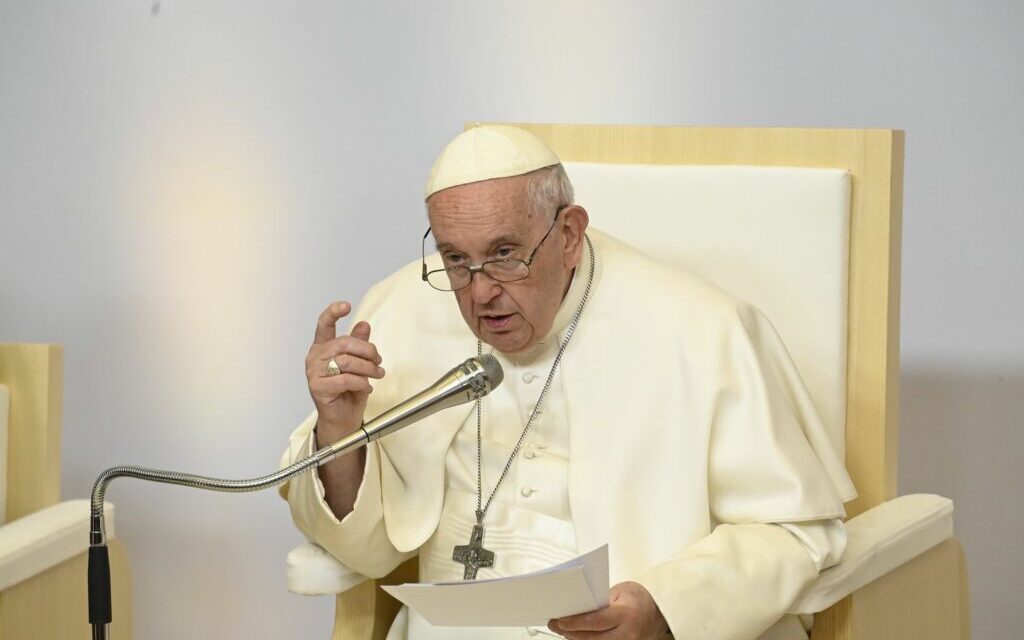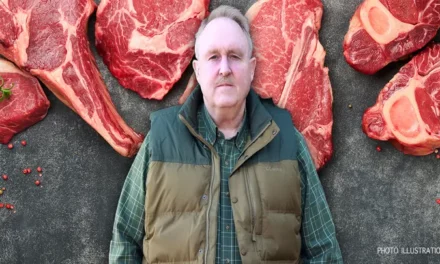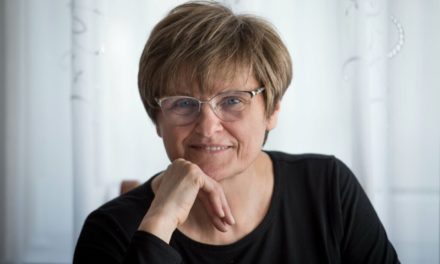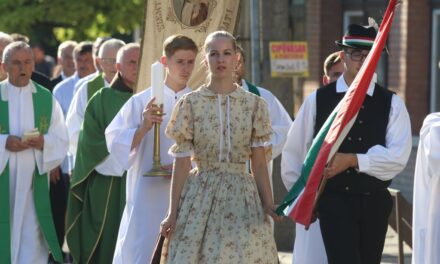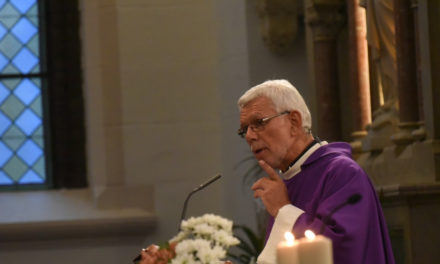The holy year announced by the Catholic Church for 2025 will begin on December 24 this year with the opening of the holy gates of St. Peter's Basilica and will last until January 6, 2026, Pope Francis announced with the publication of the bull for the holy year on Thursday.
According to tradition, the holy year begins with the opening of the so-called holy gates of the Roman basilicas. These are the entrance doors that are walled up or kept closed between two holy years, and only at the beginning of the holy year is the pope of the day breaking them open with a hammer or opening them. Pilgrims coming to Rome during the holy year pass through the holy gates of the basilicas.
The holy year announced for 2025 begins with the opening of the holy gate of St. Peter's Basilica on December 24 this year. The next one will be the opening of the holy gate of the Basilica of St. John Lateran on December 29. On January 1, 2025, the Pope will open the holy gates of the Basilica of Santa Maria Maggiore, also in Rome, and finally, on January 5, of the Basilica of St. Paul outside the former city walls.
The holy gates of the latter three basilicas will be closed again on December 28, 2025, and that of St. Peter's Basilica on the epiphany of 2026, that is, on January 6, which will put an end to this holy year.
According to the Pope's decision, the solemn mass opening the holy year will be celebrated in the dioceses of the world outside of Rome on December 29 this year, and the closing ceremony on December 28 next year.
Pope Francis announced the start and end dates of the holy year 2025 with the Latin bull published on Thursday, beginning with Spes non confundit (Hope does not disappoint), and marked the priority themes of the church year.
As usual, the papal document was published on May 9 before the holy year, on the occasion of the feast of the Ascension of the Lord. In the vestibule of St. Peter's Basilica, at the still closed holy gate, details from the papal bull were read out about the significance of the representation of the Roman basilicas, the curia and the dioceses of the five continents. Pope Francis and about two hundred members of the church listened to the reading of the bull.
According to the document
the central message of the holy year will be hope, the signs of which today's humanity must discover in the current age, in the current world, without allowing evil and violence to prevail.
Pope Francis named peace as the most important element of hope, which was "repeatedly sunk by the tragedy of war". The head of the church called for the commitment of the international community in order to provide a space for negotiations with "courage and creativity" for the sake of lasting peace.
He believed that the world refuses to remember the tragedies of the past. "Is it too much to dream of the guns falling silent?" - asked. Pope Francis initiated the creation of an international fund to fight hunger from the resources spent on weapons production.
He named the desire for the blessing of children as a pillar of a hopeful future, calling on the states to support young people in giving life. "This gives a future to all societies," says the papal bull.
The head of the church called for hope for our disadvantaged fellow human beings: he mentioned the prisoners deprived of their freedom, who, in addition to being locked up, "experience the emotional emptiness that surrounds them every day, the restrictions imposed on them, and not infrequently, the lack of respect for them".
He suggested that governments exercise amnesty or reduced sentences during the holy year,
promote community reintegration, "help these people regain hope in themselves and in society". In the bull, the Pope announced that, in addition to basilicas, he would also open a holy gate in a prison.
He urged hope for patients, whether they are at home or in the hospital. He asked for hope for young people, who "unfortunately, often see their dreams crumble, we must not disappoint them, the future is built on their enthusiasm".
He also wrote about hope in the case of migrants: "acceptance, which means open arms to everyone with respect for their dignity, should be accompanied by responsibility so that no one is denied the right to build a better future" . In addition, the Pope called for security, education, and entry into the world of work for those fleeing war, violence, and discrimination.
He believed that the elderly, who often experience loneliness and abandonment, also deserve hope. However, the life experience and knowledge of the elderly are considered a treasure for the next generations, Pope Francis stressed.
He urged hope for the billions of poor living in the world.
He called it scandalous that in a world with huge resources, they are largely used for armaments, while the majority of the population lives in poverty. He added that the poor are mentioned during international political and economic debates, but their problems are actually secondary, dealing with them shrinks into an empty duty and a marginal problem.
"Remember, the poor are almost always victims, not criminals," the Pope wrote in the bull. "The world needs hope, it needs it very much," he said at the ceremony accompanying the presentation of the bull. He also reminded that 2025 will be the 1700th anniversary of the Council of Nicaea, which is significant in the history of Christianity.
VIII. It was announced by Pope Boniface in 1300. Later it was decided that it would be repeated every twenty-fifth year.
The holy year represents a special time of grace and penance, when the faithful can receive a full pardon under certain conditions.
In 2000 II. Pope John celebrated the holy year, and Pope Francis already celebrated an extraordinary holy year in 2015.
MTI
Photo: MTI/Tamás Kovács

